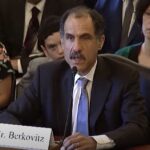Brazilian President Jair Bolsonaro has made a major step forward in the world of cryptocurrency by signing into law the country’s first cryptocurrency framework. This framework provides ground rules for brokerages that offer crypto, as well as for the day-to-day use of crypto assets. This is a major stride for Brazil, allowing them to take part in the global crypto economy and potentially reap the benefits of the cryptocurrency market. This law could also open up new opportunities for investment and trading, which could help bolster the country’s economy. This is an exciting development for the country, and a sign of the times as cryptocurrency becomes increasingly popular and mainstream.
The new bill proposed by the senate and the lower house would require a formal designation for the central bank to regulate and oversee the new structure. The rapporteurs, who are the lawmakers responsible for making changes to the original proposal, believe that the central bank should be responsible for this task. Companies providing crypto services will be given at least six months to adjust to the new structure and regulations, allowing them to make the necessary changes without being taken by surprise.
The new law published on Thursday defines cryptocurrencies as digital representations of assets that can be traded, transferred, and used for payments or investments. Crypto providers are expected to abide by laws that prevent money laundering and the concealment of assets, as well as against financing terrorism, criminal organizations, and the proliferation of weapons of mass destruction. Those who fail to comply with these laws can face criminal charges, including possible jail time. This law is an important step toward the regulation of cryptocurrencies in Brazil and ensures that these activities are conducted in a legally safe and responsible manner.
The law was something we all wanted, not only the crypto industry but investors as well,
Julien Dutra, director of government relations at 2TM
The Brazilian government recently made an announcement regarding the development of a digital version of the country’s currency, the real, to promote investments. Julien Dutra, director of government relations at 2TM, expects regulations to be outlined soon, particularly regarding capital segregation. Companies in Brazil had wanted to keep investor money off of brokerage firms’ balance sheets to avoid insolvency problems that could arise from excessive leverage, however, this article was scrapped by the lower house. The decision was made to leave it up to the central bank to further detail the regulations.











